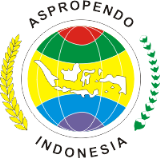THE EFFECT OF COGNITIVE APPRENTICESHIP STRATEGY ON DEVELOPING HISTORICAL THINKING SKILLS AMONG EIGHTH GRADE BASIC FEMALE STUDENTS
DOI:
https://doi.org/10.23917/jpis.v35i1.10322Keywords:
Cognitive Apprenticeship, Historical Thinking, Eighth Grade, Social Studies, Teaching StrategyAbstract
This study investigated the effect of cognitive apprenticeship strategy on developing historical thinking skills among eighth-grade students using an experimental design with two equivalent groups. The sample consisted of eighth-grade female students from basic education schools in Zakho during the academic year 2024-2025, randomly assigned to experimental and control groups. The experimental group received instruction based on cognitive apprenticeship strategy while the control group used traditional teaching methods. A historical thinking skills test was developed and validated, encompassing five main skills: chronological and spatial sequencing, historical understanding, thinking about historical evidence, understanding change and continuity, and analyzing historical issues and decision-making. Results revealed statistically significant differences between groups favoring the experimental group, with further analysis showing significant improvement in all historical thinking skills from pre to post-test. Effect size calculations demonstrated that cognitive apprenticeship had a substantial impact on developing students' historical thinking skills. The study recommends incorporating historical thinking skills in social studies curricula and encouraging teachers to implement cognitive apprenticeship strategies.
Downloads
References
Barton, K. C. (2012). School History as a Resource for Constructing Identities: Implications of Research from the United States, Northern Ireland, and New Zealand. In M. Carretero, M. Asensio, & M. Rodríguez-Moneo (Eds.), History Education and the Construction of National Identities (pp. 93-107). Information Age Publishing.
Barton, K. C., & Levstik, L. S. (2004). Teaching History for the Common Good. Lawrence Erlbaum Associates.
Bashori, A. H., Waeno, M., & Maharani, I. S. (2022). Strategi Komunikasi Islam Dalam Meningkatkan Pemahaman Ajaran Islam Masyarakat. Al Irsyad: Jurnal Studi Islam, 1(1), 31-40.
Berti, F., & Zehbe, K. C. (2024). Heritage Education: The Impact of European Cultural Policies on Educational Theory and on Primary School Curricula in Italy and Germany. Pedagogia Oggi, 2024(2), 144-150.
Breakstone, J., Smith, M., & Wineburg, S. (2018). Teaching Students to Navigate the Online Landscape. Social Education, 82(4), 219-221.
Brush, T., & Saye, J. (2017). An Instructional Model to Support Problem-Based Historical Inquiry: The Persistent Issues in History Network. In Successfully Implementing Problem-Based Learning in Classrooms: Research in K-12 and Teacher Education (pp. 79-103). Routledge.
De La Paz, S. (2021). Historical Writing and Thinking: Strategic Interventions for Diverse Learners. Reading and Writing, 34(1), 78-96.
Dennen, V. P. (2013). Cognitive Apprenticeship in Educational Practice: Research on Scaffolding, Modeling, Mentoring, and Coaching as Instructional Strategies. In Handbook of Research on Educational Communications and Technology (pp. 804-819). Routledge.
Ercikan, K., & Seixas, P. (2015). New Directions in Assessing Historical Thinking. Routledge.
Floyd, N., & Spraetz, J. (2024). Cognitive Apprenticeship Strategies for the Media Literacy Classroom. Communications in Information Literacy, 18(2), 180–197.
Fogo, B. (2014). Core Practices for Teaching History: The Results of a Delphi Panel Survey. Theory & Research in Social Education, 42(2), 151-196.
Gregersen, T., & Mercer, S. (Eds.). (2022). The Routledge Handbook of The Psychology of Language Learning and Teaching. Routledge.
Hama, A. A., & Fatah, B. I. (2024). The Level of Superstitious Thinking Among University Students. Humanities Journal of University of Zakho, 12(1), 188-200.
Ibrahim, A. A. (2017). Identify the Level of the Existing Teaching Practices on Mathematical Knowledge Economy of the Teachers of the Basic Stage, According to Some of the Variables. Humanities Journal of University of Zakho, 5(3), 725-739.
Inprasitha, M. (2022). Lesson Study and Open Approach Development in Thailand: A Longitudinal Study. International Journal for Lesson & Learning Studies, 11(5), 1-15.
Istiqomah, R. S. (2024). Upaya Pencegahan dan Penanganan Cyberbullying di Lingkungan Sekolah. Al Irsyad: Jurnal Studi Islam, 3(1), 21-28.
Jiang, M. H., Dou, L. W., Dong, B., Zhang, M., Li, Y. P., & Lin, C. X. (2024). Cognitive Apprenticeship Theory in Educational Practice: A Qualitative Review. Frontiers in Medicine, 11, 1286582.
Lévesque, S. (2008). Thinking Historically: Educating Students for the 21st Century.University of Toronto Press.
Lévesque, S., & Clark, P. (2018). Historical Thinking: Definitions and Educational Applications. In S. A. Metzger & L. M. Harris (Eds.), The Wiley International Handbook Of History Teaching and Learning (pp. 119-148). Wiley-Blackwell.
McLaughlin, J. E., Wolcott, M. D., Hubbard, D., Umstead, K., & Rider, T. R. (2019). A Qualitative Review of the Design Thinking Framework in Health Professions Education. BMC Medical Education, 19(1), 98.
Miralles-Sánchez, P., Rodríguez-Medina, J., & Gómez-Carrasco, C. J. (2025). Historical Thinking and Teacher Discourse in Secondary Education: An Exploratory Observational Study. Education Sciences, 15(3), 394.
Pauncefort, E. (2021). Critical Literacy Is at the Heart of the Answer. In Media, Technology and Education in a Post-Truth Society (pp. 73-94). Emerald Publishing Limited.
Qolamani, K. I. B., Kaya, E., Ünlü, İ., & Kaşkaya, A. (2025). Factors Affecting Implementation and Perceived Changes in the New Social Studies Curriculum: Erbil, Sulaymaniyah and Duhok Regions in Iraq as an Example. GUIDENA: Jurnal Ilmu Pendidikan, Psikologi, Bimbingan dan Konseling, 15(1), 28.
Seixas, P. (2017). A Model of Historical Thinking. Educational Philosophy and Theory, 49(6), 593-605.
Smith, M. D., Breakstone, J., & Wineburg, S. (2018). History Assessments of Thinking: A Validity Study. Cognition and Instruction, 36(3), 260-284.
Stalmeijer, R. E., Dolmans, D. H., Wolfhagen, I. H., & Scherpbier, A. J. (2009). Cognitive Apprenticeship in Clinical Practice: Can It Stimulate Learning in the Opinion of Students? Advances in Health Sciences Education, 14, 535-546.
Sulaiman, M., & Abdullah, A. (2023). Effectiveness of Integrating the Systematic and Visual Approaches in Acquiring the Tenth Grade Students with Physics Concepts. Humanities Journal of University of Zakho, 11(3), 529-544.
Tirado-Olivares, S., López-Fernández, C., González-Calero, J. A., & Cózar-Gutiérrez, R. (2024). Enhancing Historical Thinking Through Learning Analytics in Primary Education: A Bridge to Formative Assessment. Education and Information Technologies, 29(12), 14789-14813.
VanSledright, B. A. (2013). Assessing Historical Thinking and Understanding: Innovative Designs for New Standards. Routledge.
Wineburg, S. (2010). Historical Thinking and Other Unnatural Acts. Phi Delta Kappan, 92(4), 81-94.
Yassin, E. (2024). Examining the Relation of Open Thinking, Critical Thinking, Metacognitive Skills and Usage Frequency of Open Educational Resources Among High School Students. Thinking Skills and Creativity, 52, 101506.
Downloads
Submitted
Accepted
Published
Issue
Section
License
Copyright (c) 2025 Jurnal Pendidikan Ilmu Sosial

This work is licensed under a Creative Commons Attribution 4.0 International License.













